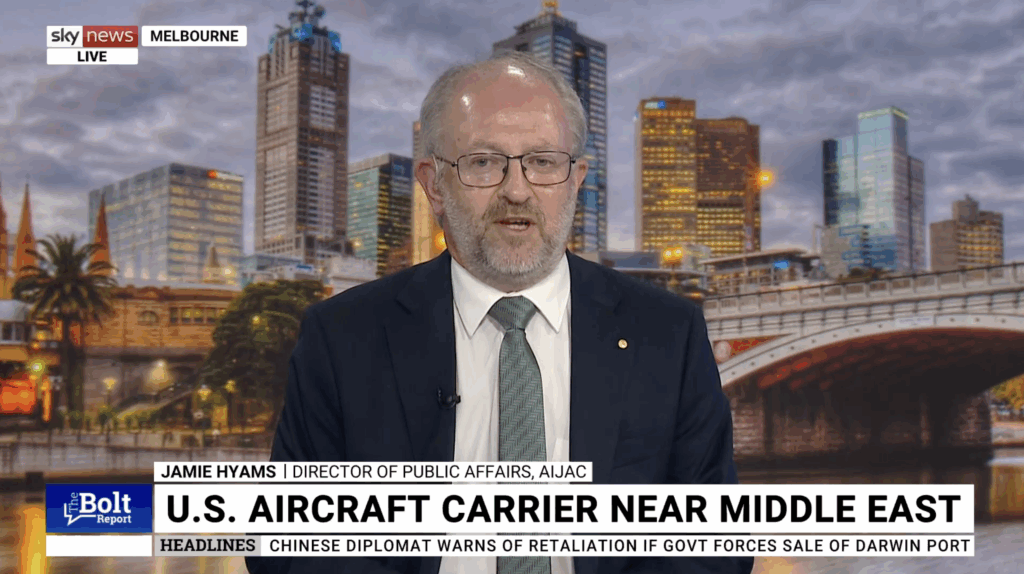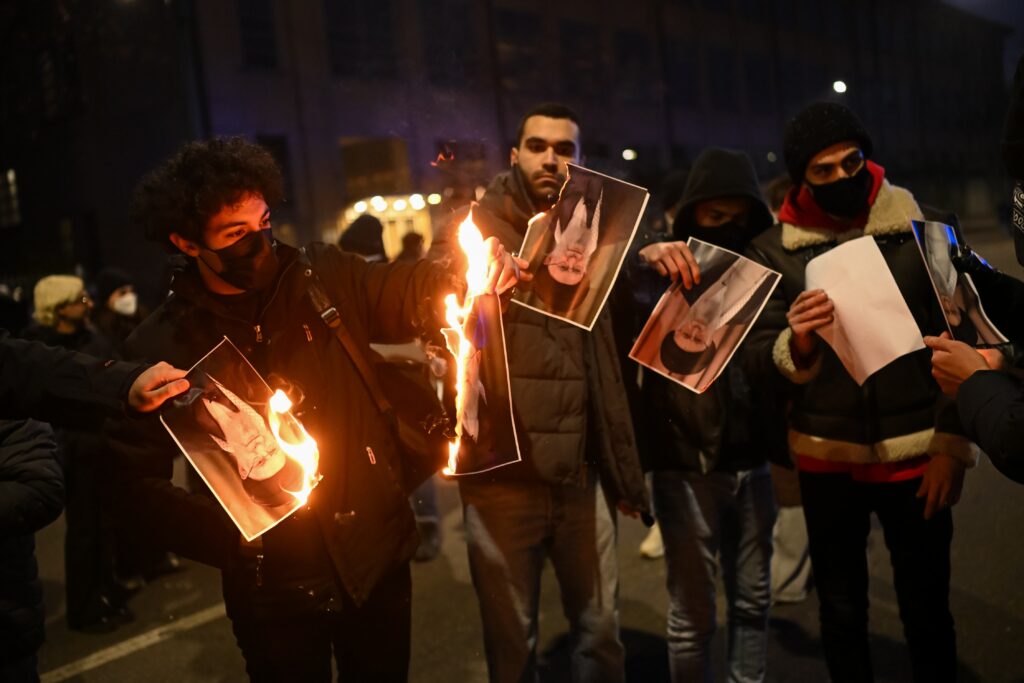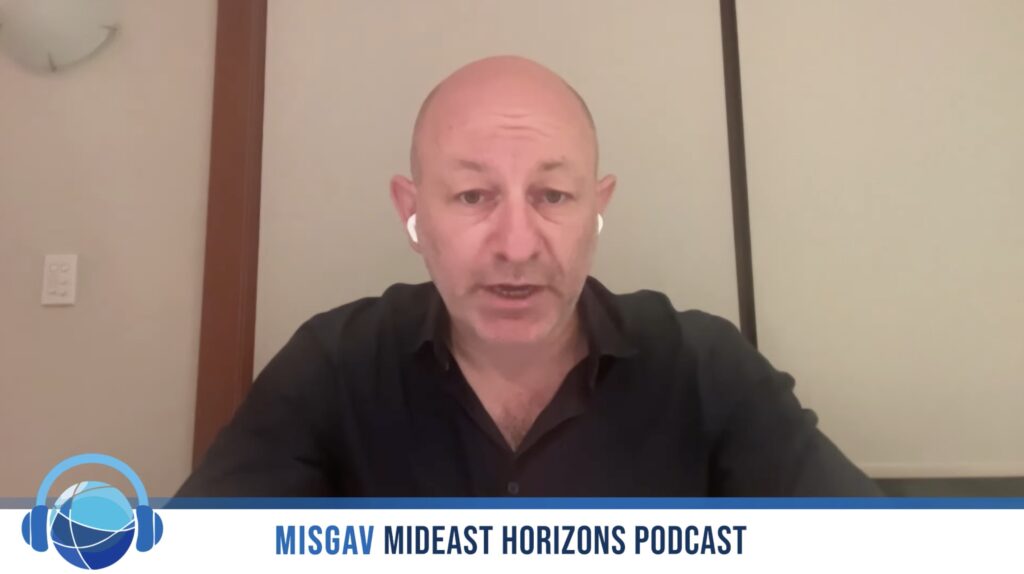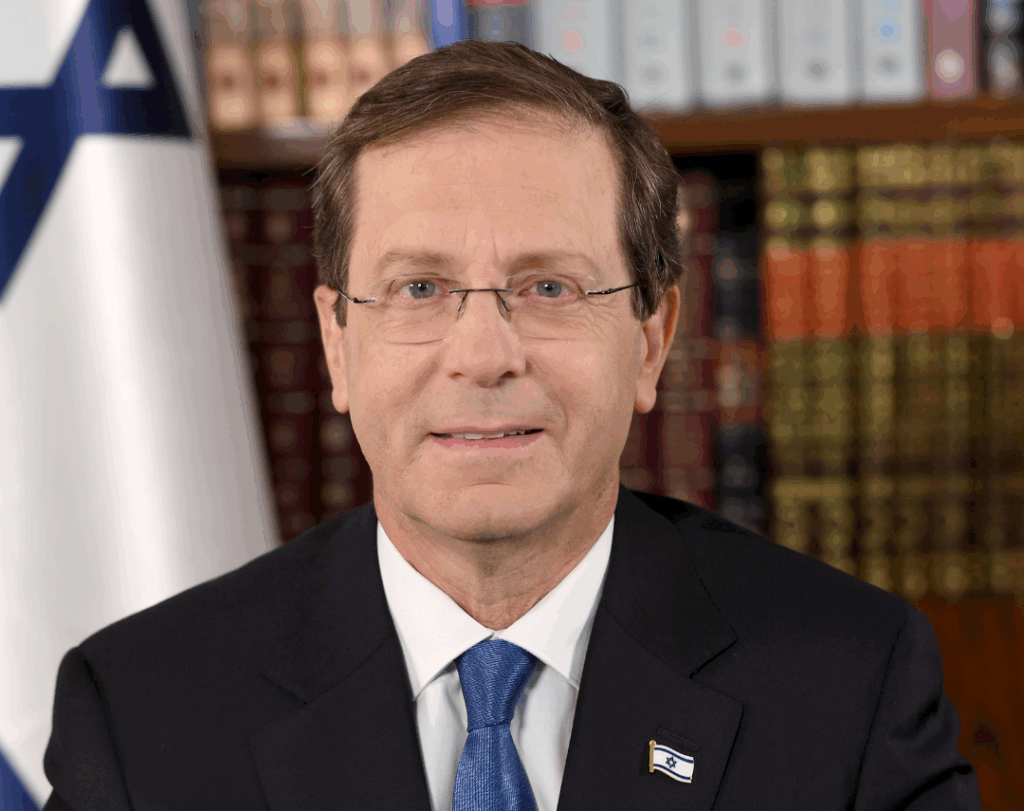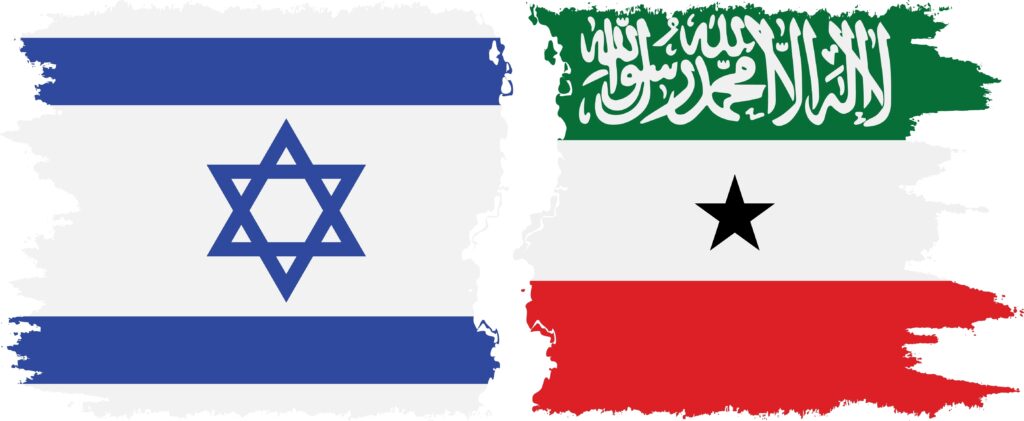UPDATES
The Muslim Brotherhood’s plan for Egypt/ PA PM Fayyad speaks out on Iran
January 13, 2012
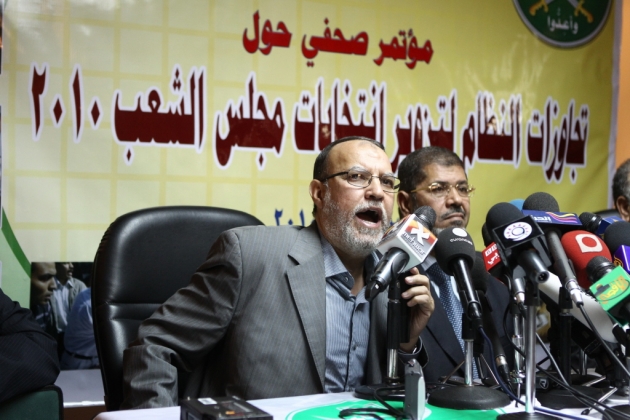
Update from AIJAC
January 13, 2012
Number 01/12 #03
This Updates leads with two articles on the likely policies of Egypt’s Muslim Brotherhood now that it has won the parliamentary election, gaining approximately 41% of seats with other Islamist groups taking the Islamist bloc up to something like 2/3 of all seats.
First up is Washington Institute expert on Egyptian politics Eric Trager, looking at the likely agenda of the Brotherhood in power. He says that the agenda will be theocracy internally, and confrontation internationally, and that expectations that the group will moderate are very unlikely to be met – offering some behavioural evidence for this. Finally, he offers some brief advice on what Washington and other Western governments can do to try to ameliorate some of the worst consequences. For this important analysis in full, CLICK HERE.
Next up is noted Israeli counter-terrorism expert Ely Karmon, who argues that there is considerable danger in indulging in wishful thinking about the likely behaviour of the Brotherhood. He specifically takes on the argument that just as the US has maintained a partnership with the Islamist Saudi government, it might be possible to establish a partnership with the Brotherhood. He reviews the history of the Saudi role in terrorism to counter this argument and adduces evidence that the Brotherhood will never be a partner in the key US policy goals – democratising the region and achieving a stable and secure Israeli-Palestinian peace. For the rest of Karmon’s argument, CLICK HERE. Also condemning wishful thinking on Egypt and the Brotherhood are veteran Israeli columnist Evelyn Gordon and academic Barry Rubin.
Finally, this Update highlights some important and newsworthy comments by Palestinian PM Salam Fayyad on both Iran and Hamas. Fayyad told the UK Jewish Chronicle that Iran is harming the Palestinians by ostensibly championing their cause and that the Palestinians fear Iran getting nuclear weapons. He also says that Hamas’ actions are inconsistent with plans for Fatah-Hamas reconciliation and predicts these efforts will be unlikely to succeed. For these very positive comments from a Palestinian leader, CLICK HERE. However, as Jonathan Toben from Commentary notes, Fayyad has limited public support and appears to be on his way out. Meanwhile, Khaled Abu Toameh notes that PA President Abbas’ inconsistency is confusing even Palestinians about what he is doing.
Readers may also be interested in:
-
The leader of the Brotherhood says their goal is not only to establish a Caliphate but to achieve “mastership of the world.”
- Barry Rubin takes on egregious examples of wishful thinking about the Brotherhood from New York Times columnist Thomas Friedman.
- In another poor sign for Egypt’s future, in the wake of an Islamist campaign, Egypt cancels a traditional annual Jewish pilgrimage to the tomb of a famous Rabbi from Morocco who is buried in Egypt.
- Meanwhile, Egypt plans to demand $500 billion in compensation from Israel for supposed damage done to the Sinai during Israel control from 1967-1978.
- A discussion of why the Guardian and other news sources are unwilling to report alleged instances of Egyptian antisemitism.
- A good analysis of what the assassination of Iranian nuclear scientists – such as that of Mostafa Ahmadi-Roshan on Wednesday – might be intended to achieve.
- An interesting look inside the increasing difficulties of Lebanon’s Hezbollah, including an allegation that Hezbollah leader Hassan Nasrallah said he was considering quitting.
- Signs Libya may be disintegrating as a state.
The Muslim Brotherhood’s Radical Plan for Egypt
PolicyWatch #1889
January 10, 2012
Given the Muslim Brotherhood’s anti-Western outlook, Washington must prepare for the strong possibility that it will hold only limited influence with Egypt’s next government.
When the third and final round of Egypt’s parliamentary elections concludes tomorrow, the Muslim Brotherhood’s Freedom and Justice Party (FJP) is widely expected to cement its dominance of the next legislature. Although the Supreme Council of the Armed Forces still holds executive power, the FJP’s political victory promises radical changes for Egypt, including a theocratic domestic program and a confrontational foreign policy. The United States should have no illusions about the party’s aims or ability to moderate. As long as the FJP is in power, Washington should condition future bilateral relations on its behavior regarding key U.S. interests, including the treatment of religious minorities, Egypt’s peace treaty with Israel, and counterterrorism.
Background
The FJP was licensed on April 30, 2011, making it the second new party to be recognized by the Egyptian government following Hosni Mubarak’s February 11 ouster. Initially, it sought to assuage fears of a post-Mubarak Islamist takeover by promising to run for fewer than 50 percent of the seats. But after its electoral alliance with the Wafd Party broke down in late October, the FJP announced that it would contest 77 percent of the seats.
In the first round of the elections, which began on November 28, the FJP’s coalition won an estimated 73 of 150 seats (48.7 percent), and in the second round, which began on December 14, an estimated 79 of 172 seats (45.9 percent). Its margin of victory is expected to increase in the third round, which is taking place in traditional Brotherhood strongholds such as the Gharbiyah and Daqahliyah governorates.
A Theocratic Domestic Policy
The FJP’s overriding aim is to establish an Islamic state in which sharia would be the primary source of legislation. Although FJP leaders correctly note that “sharia principles were a main source of legislation” under Article II of the 1971 constitution, which was suspended following Mubarak’s ouster, the party intends to implement sharia-based laws far more comprehensively than was previously done. The FJP platform states that “sharia, in its essence…organizes the various aspects of life for Muslims and those non-Muslims who participate in the state with them.” The party’s theocratic aims are therefore likely to change many aspects of Egypt’s domestic policy.
Three such issues should be of special concern to Washington. First, FJP leaders have repeatedly said that they would ban alcohol and beach bathing — both of which are essential to a tourism industry that accounts for roughly 10 percent of the economy. Second, Egypt faces a severe cash crisis, and its ability to attract international investment may be hampered by the Brotherhood’s intention to implement the Quranic prohibition on interest-based banking. Third, newly elected FJP parliamentarians have said that they will not tolerate criticisms of Islam or sharia, including those made by Christians and secularists. In recent months, Brotherhood-affiliated lawyers have filed suits against organizations and individuals accused of insulting Islam. These attempts to limit free speech are likely to intensify once the FJP assumes control of parliament.
A Confrontational Foreign Policy
The Brotherhood is similarly signaling its preference for radicalism over realism in foreign affairs. For example, Supreme Guide Muhammad Badie recently declared that, after forming the new government, the organization would pursue its final goal of establishing a “rightly guided caliphate for the education of the world.” This goal may be unrealistic in the short term, but the Brotherhood is already working through the FJP to tilt Egypt away from its Western allies and toward an Islamist foreign policy.
The peace treaty with Israel will likely be the first casualty of an FJP-led government. Although the party has said that it will honor Egypt’s international agreements, it has carved out an exception for the Camp David Accords, which it intends to put to a national referendum, thereby shielding itself from direct responsibility for the treaty’s demise. Meanwhile, the Brotherhood has amplified its confrontational posture toward Israel in recent weeks by vowing never to recognize the state and warmly greeting Hamas leader Ismail Haniyeh in Cairo.
Not Likely to Moderate
It is tempting to believe that the FJP will moderate once in power, but four factors make this highly unlikely. First, although the Brotherhood has frequently portrayed the FJP as a separate entity, the distinction between the “organization” and its “political wing” is superficial. The Brotherhood’s fifteen-member Guidance Office elected the FJP’s leaders, all of whom are former members of that office. Moreover, the choice of hardliner Muhammad Morsi as the FJP’s first chairman suggested that the Brotherhood was committed to ensuring the party would not veer from its parent organization’s principles.
Second, the Brotherhood ensures the FJP’s ideological rigidity by retaining direct control over its parliamentary nomination process. The new FJP parliamentarians are all longtime Muslim Brothers whose candidacies were thoroughly vetted by multiple layers of the organization’s leadership.
Third, the emergence of the Salafist Nour Party as Egypt’s second-strongest faction makes moderation a strategically dangerous choice for the FJP. Much of the Nour Party’s appeal is based on its claim to represent the “true” Islam, making it a respected arbiter of Islamic principles within Egyptian politics. The FJP thus risks losing support among an overwhelmingly religious electorate if it is perceived to be veering from its Islamist doctrine. It is particularly unlikely to disagree with the Nour Party on basic Quranic principles such as the bans on usury and alcohol.
Finally, the FJP has invited al-Gamaa al-Islamiyah, a U.S.-designated terrorist organization, to join its future governing coalition. The inclusion of this radical, historically violent faction further reduces the likelihood of the Brotherhood pursuing a moderate agenda, and will severely complicate U.S. efforts to cooperate with the next Egyptian cabinet.
U.S. Policy Options
The fact that the FJP has won parliamentary power via elections should not fool policymakers into believing that the organization is committed to democratic principles or moderation. For this reason, Washington should use its current engagement with Brotherhood leaders to communicate that the future of U.S.-Egyptian relations depends on the organization’s behavior regarding three key U.S. interests.
First, the Obama administration should communicate its concerns about the status of religious minorities under Islamist rule more directly. Specifically, it should demand that the Brotherhood end its illiberal litigation against Christians and secularists accused of insulting Islam, and warn against criminalizing public dissent with sharia.
Second, Washington should insist that Egypt maintain its peace treaty with Israel, telling the Brotherhood that any referendum on the Camp David Accords will be interpreted as an attempt to destroy that agreement. In recent conversations, Brotherhood leaders have expressed their belief that they would not be blamed if the treaty were revoked by a nationwide vote, as seems likely. They need to be told otherwise.
Third, Washington should make clear that it expects the Egyptian government to fight terrorism domestically. In this vein, U.S. officials should use their meetings with Brotherhood leaders to insist that terrorist groups such as al-Gamaa al-Islamiyah be excluded from future governments. Washington should further press the Brotherhood to produce a plan for stabilizing the Sinai. In recent conversations, the organization’s leaders acknowledged that growing terrorist activity in the peninsula is both a domestic security problem and a potential spark for crises with Israel. Since the United States and the Brotherhood share an interest in stabilizing, and perhaps developing, the Sinai, this issue could provide an opening for cooperation.
Given the Brotherhood’s anti-Western outlook, however, Washington must prepare for the strong possibility that it will hold only limited influence with Egypt’s next government. Accordingly, the Obama administration should explore the possibility of a multilateral framework for encouraging a Brotherhood-led Egypt to maintain peace with Israel, respect minority rights, and fight terrorism.
Eric Trager, The Washington Institute’s Ira Weiner fellow, is a doctoral candidate in political science at the University of Pennsylvania, where he is writing his dissertation on Egyptian opposition parties.
Back to Top
————————————————————————
Washington is playing with Brotherhood fire
By ELY KARMON
Jerusalem Post, 09/01/2012
Wishful thinking on the part of the Obama administration is creating some dangerous illusions about the “new” Egypt.
Several days ago The New York Times revealed a historic shift in US foreign policy, saying “the Obama administration has begun to reverse decades of mistrust and hostility as it seeks to forge closer ties” with the Egyptian Muslim Brotherhood, once viewed as irreconcilably opposed to US interests.
The move was attributed to the new political reality, the results of three rounds of elections in Egypt which project the Muslim Brotherhood as the winners of the majority in the new parliament. It was also made possible by the Brotherhood’s “moderate messages,” including the promise to build a “modern democracy that will respect individual freedoms, free markets and international commitments, including Egypt’s treaty with Israel.”
But what’s really new about this? For decades the US has had deep strategic, military and economic relations with Saudi Arabia, a theocratic regime which has a much more obscurantist Islamist policy than the one proposed by the Brotherhood in its official program (not the one presented to the Egyptian and foreign public in its platform before the elections).
The US also provided military support, albeit indirectly, to the mujihadeen fighting the Soviet invaders in Afghanistan in the 1980s.
What’s really new here is the obliviousness and naïve, wishful thinking evinced by the American policy makers and intellectuals proposing this “rapprochement” with the Islamist movements in the Arab world, which hijacked the uprisings of the young Arab modernist forces in Tunisia and Egypt and will probably do the same in Libya and Syria.
The mujihadeen of Afghanistan fell under the influence of Abdullah Azzam, the ideologue of the jihadist global movement and the mentor of Osama bin Laden. Azzam’s concept of “al-Qa’ida al-Sulbah,” or “the solid base” of the jihadi vanguard was the source of the al-Qaida organization’s name.
Abdullah Azzam visited the United States in the late 1980s, before the end of the war in Afghanistan and the withdrawal of the Soviet forces, and preached jihad against America.
When the Taliban took control of Afghanistan in 1995-96, Saudi Arabia gave it financial support and diplomatic recognition, despite the Taliban’s permission for bin Laden to train anti-American and anti-Saudi young jihadists on Afghani soil.
Surprisingly, al-Qaida never attacked Saudi interests before the American occupation of Iraq in spring 2003.
It is also surprising that 15 of the 19 hijackers who attacked the US on September 11, 2001 were Saudis.
The 9/11 Commission identified eight more al-Qaida operatives who had been personally chosen by bin Laden to participate in the hijackings, but who for a variety of reasons dropped out of the plot.
Saudis have been involved in every major terrorist attack against the United States, in Saudi Arabia itself and elsewhere: the Saudi National Guard bombing in November 1995, the Khobar Towers bombing in June 1996, the Nairobi embassy bombing in August 1998, the USS Cole bombing in October 2000, and, of course, September 11.
Moreover, Saudi nationals have played a leading role in financing the al-Qaida infrastructure and its terrorist attacks and have also funded the Sunni insurgency in Iraq against the American and coalition forces. Some 70 percent of the suicide bombers in Iraq were Saudis.
Apologists for the Bush administration’s foreign policy toward Saudi Arabia claimed that “despite all their shortcomings” Saudi Arabia was a willing partner in the fight against the mutual threat represented by al-Qaida.
WILL THE Muslim Brotherhood be a willing partner in the democratization of Egypt and the Arab world at large? The double-talk of its leaders does not bode well for the future. Their promises at the beginning of the uprising in Egypt to run only for 35% of the parliament seats look today like a farcical joke. Ibrahim Munir, a spokesman for the Brotherhood, has denied that the group has given any assurances to Washington about respecting the agreement with Israel.
Essam al-Erian, deputy head of the Brotherhood’s Freedom and Justice Party, declared that the Brotherhood is “not in a position to give assurances.”
Brotherhood leader Mohammed Badie, who met recently with Hamas Prime Minister Ismail Haniyeh during the latter’s visit to Cairo, declared that the “Brotherhood has always embraced issues of liberation, foremost the Palestinian issue,” and that Hamas has served as a role model to the Brotherhood. Haniyeh described Hamas as the “jihadi movement of the Brotherhood with a Palestinian face” and claimed his visit to the Brotherhood center would confuse and frighten “the Israeli entity.”
In Israel, too, some respected voices have proposed talking to Hamas and the Egyptian Muslim Brotherhood in the name of realpolitik. The new Israeli ambassador to Cairo has been instructed to look for contacts with the Brotherhood leaders.
In the past Israel has been accused of “inventing” Hamas and supporting its activities. In fact, as far back as the 1970s Israeli authorities permitted Palestinian Muslim Brotherhood factions in Gaza and the West Bank to act openly on the religious, social and economic level [so-called da’wa activities] as they did not engage at that time in terrorism like their secular comrades.
The Israeli political and military establishment did not take seriously the declarations of the then-Muslim Brotherhood leaders that they were preparing a new generation of young jihadi fighters for the liberation of Palestine for the purpose of creating an Islamic state.
Only in 1985 had it become clear that the Palestinian Muslim Brotherhood was preparing for “armed struggle,” but the arrest of its leader Sheikh Ahmed Yassin did not stop the militarization process which led to the metamorphosis of the movement in the Hamas terrorist organization at the opening of the first intifada in 1987.
Hamas, together with the Palestinian Islamic Jihad [another faction of the Muslim Brotherhood which became a proxy of the Tehran regime] was responsible for the waves of suicide bombings in the mid- 1990s, in the aftermath of the Oslo peace agreement. That sabotaged the sensitive relationship between Israel and the Palestinians, and during the second bloody intifada derailed the chances for a negotiated solution.
The Brotherhood victory in Egypt presents a serious dilemma indeed for US, European and Israeli leaders alike. They probably have no alternative but to engage with the new Islamist leaders who will control the leading Arab country and the less important ones.
The question is whether they will be able to challenge the Brotherhood’s Islamist radical religious worldview and autocratic tendencies as it attempts to impose them on the Arab peoples and lead the region to an obscurantist era, in sharp conflict with Western democratic and liberal values.
The writer is a senior research scholar at the International Institute for Counter-Terrorism (ICT) and The Institute for Policy and Strategy (IPS) at The Interdisciplinary Center in Herzliya
Back to Top
————————————————————————
PA shares Israel’s nuclear Iran fears
The Prime Minister of the Palestinian Authority, Salam Fayyad, has attacked the behaviour of Iranian President, Mahmoud Ahmadinejad and said that he shares Western – and Israeli – concerns with the Iranians’ nuclear project.
Speaking in his Ramallah headquarters, Prime Minister Fayyad said that the Palestinians were “greatly harmed” by the Iranian leader’s conduct.
President Ahmadinejad, he said, should stop acting as a supposed spokesman for the Palestinians. The Iranian president was concerned only with increasing Iranian influence in the region.
This is the first time that a Palestinian leader has been so explicit in condemning Iranian involvement in the conflict. Iran funds and supplies both Hizbollah and Hamas, the main opposition to Prime Minister Fayyad’s Fatah party.
The Iranian leader’s involvement, he said, made an already bad situation far worse: “We are greatly harmed by President Ahmadinejad projecting himself as a spokesman for the Palestinians. He seeks the destruction of Israel. We do not. We are deeply troubled by Iran’s interventions and we suffer from them.”
Prime Minister Fayyad also said that he was concerned about the Iranian regime developing a nuclear weapon, and contrasted Iran with the Palestinian state he was seeking to build, which would be “secular, open and culturally sensitive”.
He said that he was “not sanguine” about Turkey “beginning to throw its weight around”. Turkey has traditionally had good relations with both the Palestinians and Israel, but its relations with Israel have collapsed in recent months and it is widely seen as trying to establish itself as a regional power.
The Palestinian PM, who is regarded by Israel and the West as a moderate who should be supported, also said that there was little prospect of unity talks between Hamas and Fatah succeeding: “Hamas’s actions are not consistent with reconciliation.” Last Friday a Fatah delegation was barred from entering Gaza for talks.
The main precondition for any unity agreement between the two organisations was for Hamas “formally to accept non-violence. But they won’t change their platform.” In addition, Hamas’s acceptance of a timetable for elections in Gaza was “a bellwether test for serious reconciliation”.
Tags: Egypt

